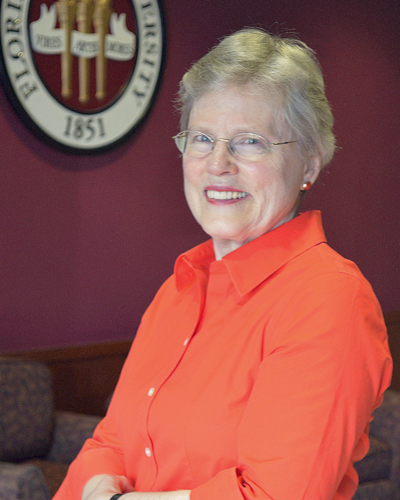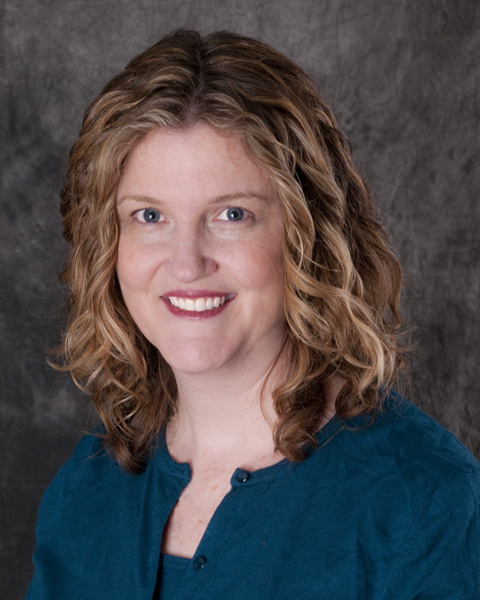With a 2010 measurement grant award and a 2010 Reading for Understanding subaward from IES, a team at Florida State University (FSU) led by Barbara Foorman, developed a web-based literacy assessment for Kindergarten to Grade 12 students.
Years of initial research and development of the assessment method, algorithms, and logic model at FSU concluded in 2015 with a fully functioning prototype assessment called RAPID, the Reading Assessment for Prescriptive Instructional Data. A body of research demonstrates its validity and utility. In 2014, to ready the prototype for use in schools and to disseminate on a wide-scale basis, FSU entered into licensing agreements with the Florida Department of Education (FLDOE) to use the prototype assessment royalty-free as the Florida Assessment for Instruction in Reading—Florida Standards (FAIR-FS), and with Lexia Learning Systems LLC, a Rosetta Stone company (Lexia), to create its commercial solution: Lexia® RAPID™ Assessment program. Today, RAPID (watch video) consists of adaptive screening and diagnostic tests for students as they progress in areas such as word recognition, vocabulary knowledge, syntactic knowledge and reading comprehension. Students use RAPID up to three times per year in sessions of 45 minutes or less, with teachers receiving results immediately to inform instruction.
RAPID is currently used by thousands of educators and students across the U.S. RAPID has been recommended in Massachusetts as a primary screening tool for students ages 5 and older, is on both the Ohio Department of Education List of Approved Screening Assessments and the Michigan Lists of Initial and Extensive Literacy Assessments.
Interview with Barbara Foorman (BF) of Florida State University and Liz Brooke (LB) of Lexia Learning

From the start of the project, was it always a goal for the assessment to one day be ready to be used widely in schools?
BF: Yes!
How was the connection made with the Florida Department of Education?
BF: FSU authors (Yaacov Petscher, Chris Schatschneider, and I) gave the assessment royalty-free in perpetuity to the FLDOE, with the caveat that they had to host and maintain it. The FLDOE continues to host and maintain the Grade 3 to 12 system but never completed the programming on the K to 2 system prototype. The assessment we provided to the FLDOE is called the Florida Assessment for Instruction in Reading (FAIR—FS). We also went to FSU’s Office of Commercialization to create royalty and commercialization agreements.
How was the connection made with Lexia?
BF: Dr. Liz (Crawford) Brooke, Chief Learning Officer of Lexia/Rosetta Stone, and Dr. Alison Mitchell, Director of Assessment at Lexia, had both previously worked at the Florida Center for Reading Research (FCRR). Liz served as the Director of Interventions, as well as a doctoral student under me, and Alison was a postdoctoral assistant in research. Both Liz and Alison had worked on previous versions of the assessment.

LB: Also, both Yaacov and Chris had done some previous work with me on the Assessment Without Testing® technology, which was embedded in our K to 5 literacy curriculum solution, the Lexia® Core5 Reading® program.
Did Lexia have to do additional R&D to develop the FSU assessment into RAPID as a commercial offering for larger scale use? Were resources provided?
LB: To build and scale the FSU prototype assessment into a commercial platform, our team of developers worked closely with the developers at FSU to reprogram certain software application and databases. We’ve also spent the last several years at Lexia working to translate the valuable results that RAPID generates into meaningful, dynamic and usable data and tools for schools and educators. This meant designing customized teacher and administrator reports for our myLexia® administrator dashboard, creating a library of offline instructional materials for teachers, as well as developing both online and in-person training materials specifically designed to support our RAPID solution.
BF: They also hired a psychometrician to submit RAPID to the National Center for Intensive Intervention, and had their programmers develop capabilities to support access to RAPID via iPads as well as through the web-based application.
What kind of licensing agreement did you (or FSU) work out?
BF: The prototype assessment method, algorithms, and logic model that were used to develop RAPID are licensed to Lexia by FSU. Some of these may also be available for FSU to license to other interested companies. Details of FSU’s licensing agreement terms to Lexia are confidential, however, royalties received by FSU through its licensing arrangements are shared between authors, academic units, and the FSU Research Foundation, according to FSU policies. (Read here for more about commercialization of FSU technologies and innovations.)
Does FSU receive royalties from the sale of RAPID?
BF: Yes. The revenue flows through FSU’s royalty stream—percentages to the three authors and the colleges and departments that we three authors are housed in.
What factors did Lexia consider when determining to partner with FSU to develop RAPID?
LB: We considered the needs of our customers and the fact that we wanted to develop and offer a commercial assessment solution that would provide a great balance between efficiency from the adaptive technology, but also insight based on an emphasis on reading and language skills. At Lexia, we are laser-focused on literacy and supporting the skills students need to be proficient readers. The value of the research foundation of the assessment was a natural fit for that reason. RAPID emphasizes Academic Language skills in a way that many other screening tools miss - often you’d need a specialized assessment given by a speech language pathologist to assess the skills that RAPID captures in a relatively short period of time for a whole classroom of students.
Describe how RAPID is marketed and distributed to schools?
LB: The Lexia RAPID Assessment was designed and is offered as a K-12 universal screening tool that schools can use up to three times per year. We currently offer RAPID as a software as a service -based subscription on an annual cost per license basis that can be either purchased per student or per school. We also encourage schools that utilize RAPID to participate in a yearlong Lexia Implementation Support Plan that includes professional learning opportunities and data coaching specific to the RAPID solution, to really understand and maximize the value of the data and instructional resources that they receive as part of using RAPID.
Do you have advice for university researchers seeking to move their laboratory research into wide-spread practice?
BF: Start working with your university’s office of commercialization sooner than later to help identify market trends and create Non-Disclosure Agreements. In the case of educational curricula and assessments, researchers need to be (a) knowledgeable about competing products, (b) able to articulate what’s unique and more evidence-based than the competitors’ products, and (c) know that educators will find their product useful.
LB: As Barbara noted, it is critical to identify the specific, real-world need that your work is addressing and to be able to speak to how that’s different than other solutions out there. It’s also really important to make sure that the research you’ve done has really validated that it does meet the need you are stating, as this will be the foundation of your claims in the market.
____________________________________________________________________________________________
Barbara Foorman, Ph.D., is the Frances Eppes Professor of Education, Director Emeritus of FCRR, and Director of the Regional Educational Laboratory Southeast at FSU. Barbara is an internationally known expert in reading with over 150 peer reviewed publications. Barbara was co-editor of the Journal of Research on Educational Effectiveness and is a co-founder and on the board of the Society for Research on Educational Effectiveness
Liz Brooke, Ph.D., CCC-SLP is the Chief Learning Officer for Rosetta Stone/Lexia Learning. Dr. Liz Brooke is responsible for setting the educational vision for the company's Language and Literacy products, including the Adaptive Blended Learning (ABL) strategy that serves as the foundation for Rosetta Stone’s products and services. Liz has been working in the education sector for over 25 years and has been published in several scholarly journals. Liz joined Lexia in 2010. Prior to that, she worked as the Director of Interventions at the FCRR and she has also served as a speech-language pathologist at Massachusetts General Hospital and in the public school setting. Liz began her career in the classroom as a first-grade teacher.
This interview was produced by Edward Metz of the Institute of Education Sciences. This post is the second in an ongoing series of blog posts examining moving from university research to practice at scale in education.